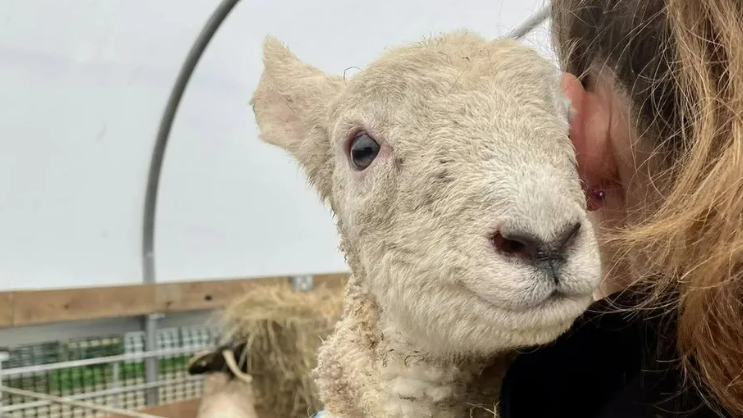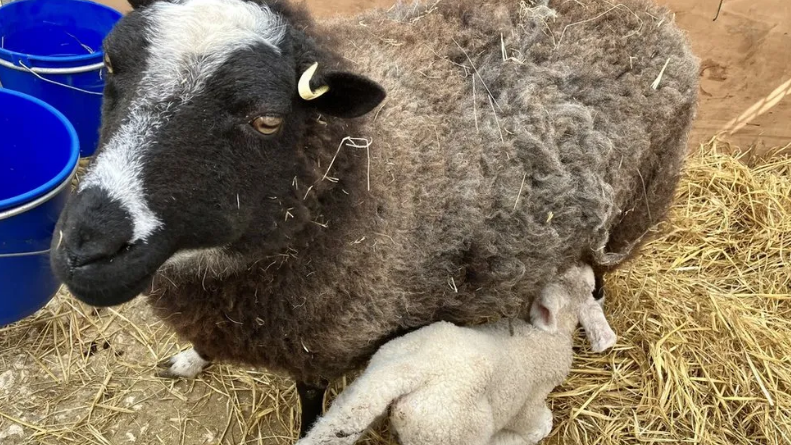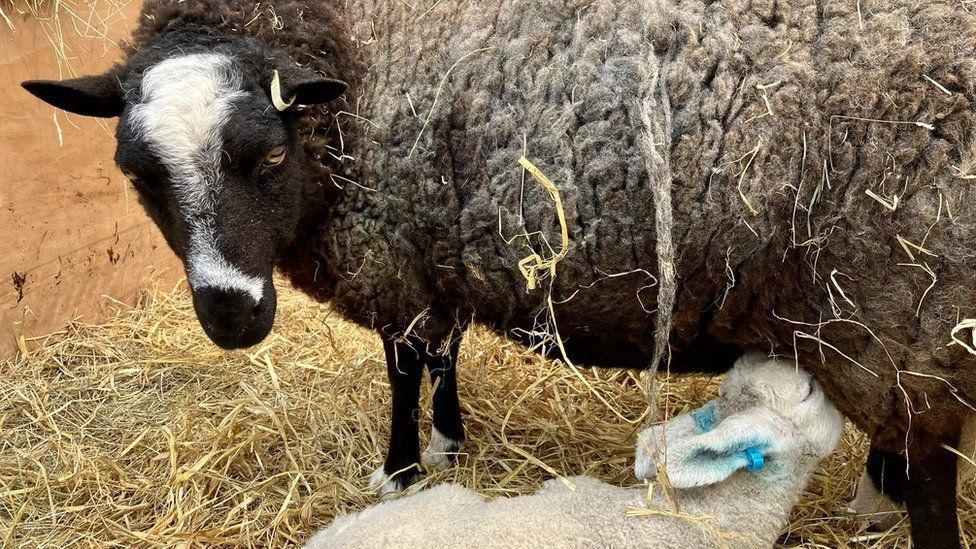Why did farm where visitors fell sick need to close?

A Suffolk visitor farm closed this week after four reports visitors had become ill
- Published
A farm attraction temporarily closed this week after an outbreak of E. coli and cryptosporidium.
Baylham House Farm near Ipswich closed on Wednesday after four reports of visitors catching the two infections.
Investigators from government agencies including the UK Health Security Agency (UKHSA) are aware of the infections and are expected to visit the farm next week.
The farm said it was "deeply concerned" to hear of the sickness - but what does this outbreak mean and what is being done?
What is E. coli and cryptosporidium?
According to the UKHSA, E. coli can "cause illness ranging from mild diarrhoea to life threatening conditions".
In a small number of people, it "can cause very serious illness called haemolytic uraemic syndrome (HUS)".
The risk of catching HUS is highest in children aged five years and under, according to the UKHSA.
E. coli is very infectious and has been the cause of several outbreaks following eating infected food, coming into contact with infected people and touching infected animals or their faeces.
Cryptosporidium is a parasite that causes similar symptoms to E. coli and is "found in the intestines and faeces of infected humans and animals".
The UKHSA states it can cause diarrhoea, stomach pains, nausea or vomiting leading to dehydration and weight loss.
It is most common in children aged between one and five, but often people who handled infected livestock can be at risk.
How are the infections treated and how do you avoid illness?
There is no specific treatment for the infections, according to the UKHSA.
"The illness is usually self-limiting, and will clear itself within a week," a spokesperson said.
Those who are ill are urged to drink plenty of fluids to avoid dehydration caused by diarrhoea.
Antibiotics are not recommended as it could lead to the risk of getting HUS.
Sarah Weir, consultant in health protection at UKHSA for the East of England, offered advice when visiting farms or petting zoos.
"It is very important to wash hands thoroughly with soap and warm water after touching or playing with animals and their surroundings such as gates and fences," she explained.
The NHS should be contacted on 111 if you or your child has bloody diarrhoea, Ms Weir added.
As well as this children under five should not attend school, nursery or group childcare "until they have been free of sickness or diarrhoea for two days".
"Visits to hospital or care home settings should be avoided if you are feeling unwell," Ms Weir added.
Should work or school be avoided?

The farm is due to remain closed until it is safe to reopen
Those who have been infected "may be excluded from work, school or other institutional settings until 48 hours after you've stopped vomiting or have diarrhoea", the UKHSA said.
There may be groups of people who will be screened for the infections to confirm negativity prior to returning to work or school.
What has the UKHSA said?
The UKHSA said it was working with local authorities as well as NHS partners and has "provided infection prevention and control advice".
"The farm is following public health guidance and will be implementing extra control measures to address the issue," it added.
"Farm animals in general can be the source of several bugs that can be passed from animals to humans and cause illness," a spokesperson said.
"Some can be particularly serious for children or pregnant women.
"Regular hand-washing when visiting such a setting is the best way to prevent illnesses developing."
What has the farm said and when will it open?
Neil Storer, the farm director, said he was "deeply concerned" to hear of the sickness reports and wished those who had been infected a quick recovery.
He said the farm would be working with government bodies "to determine the source of these infections as quickly as possible".
Farm manager, Kate Ockelton, added: "The health and safety of our visitors and the health and welfare of our animals are the primary aims of our staff.
"We work so hard to ensure that we achieve both.
"We have seen no clinical signs of sickness in our animals so we are devastated to hear of this illness."
The farm will only reopen once it has established it is safe to do so.
Mid Suffolk District Council said it was working alongside officials to "support the farm and conduct further investigation to ensure there is no risk to the public".
Got a story? Email eastofenglandnews@bbc.co.uk, external or WhatsApp us on 0800 169 1830
Related topics
- Published25 April 2024
